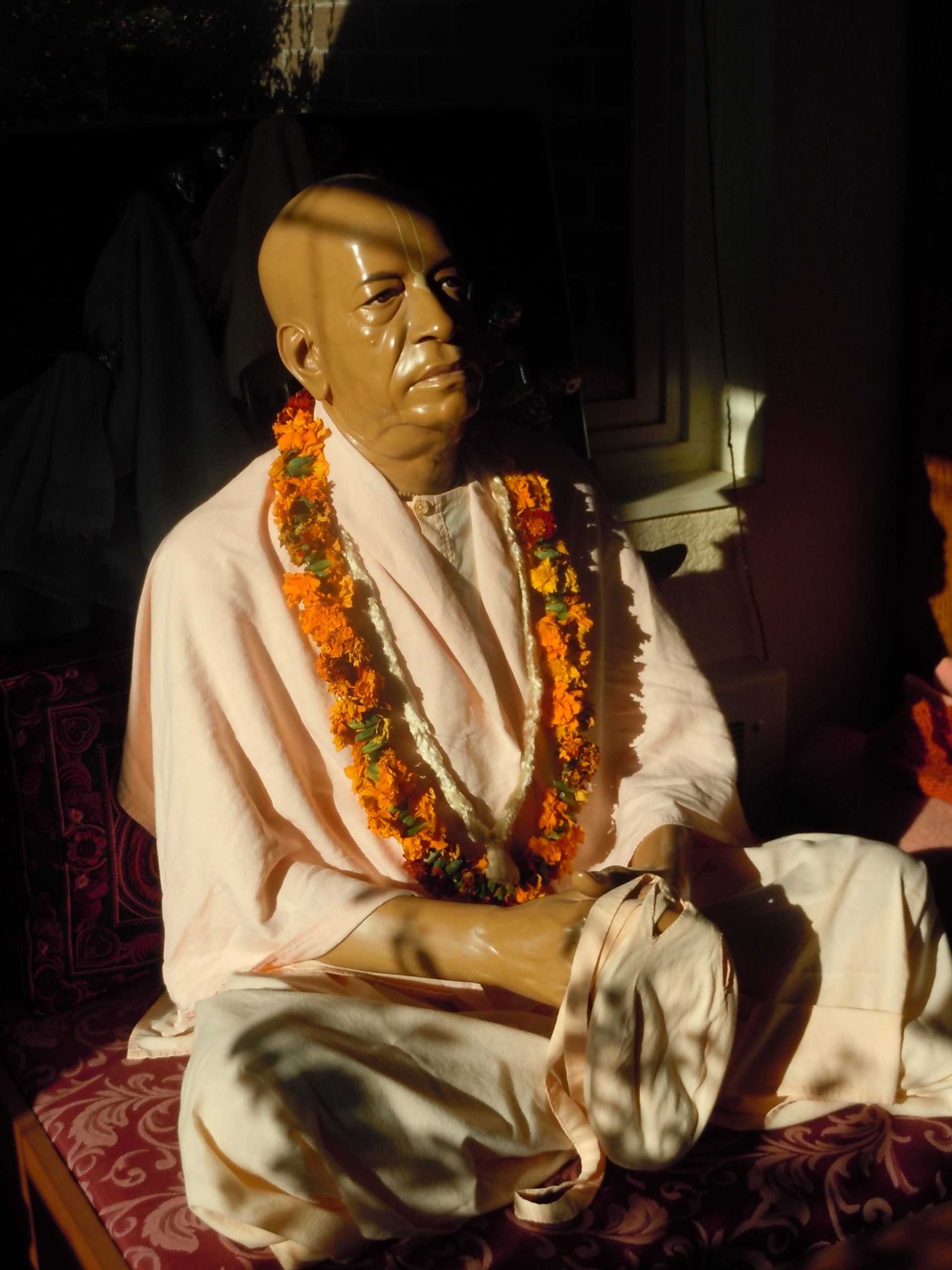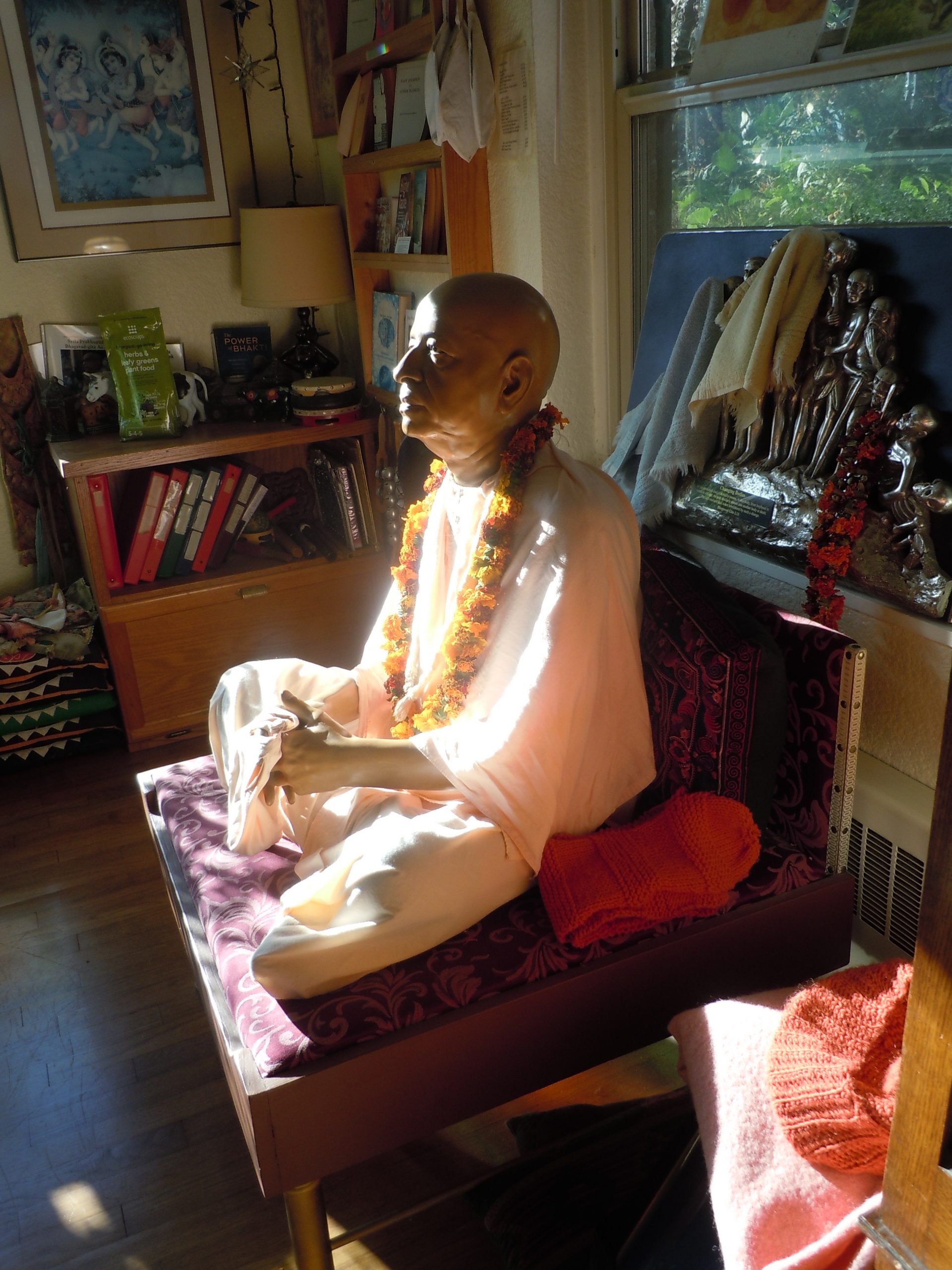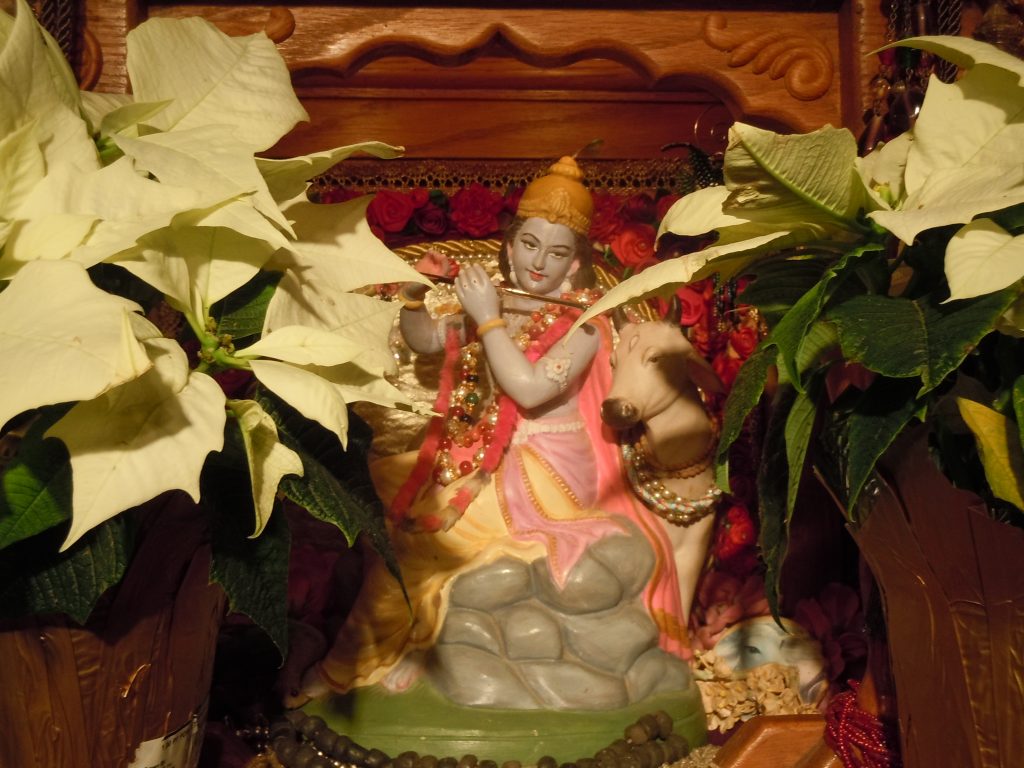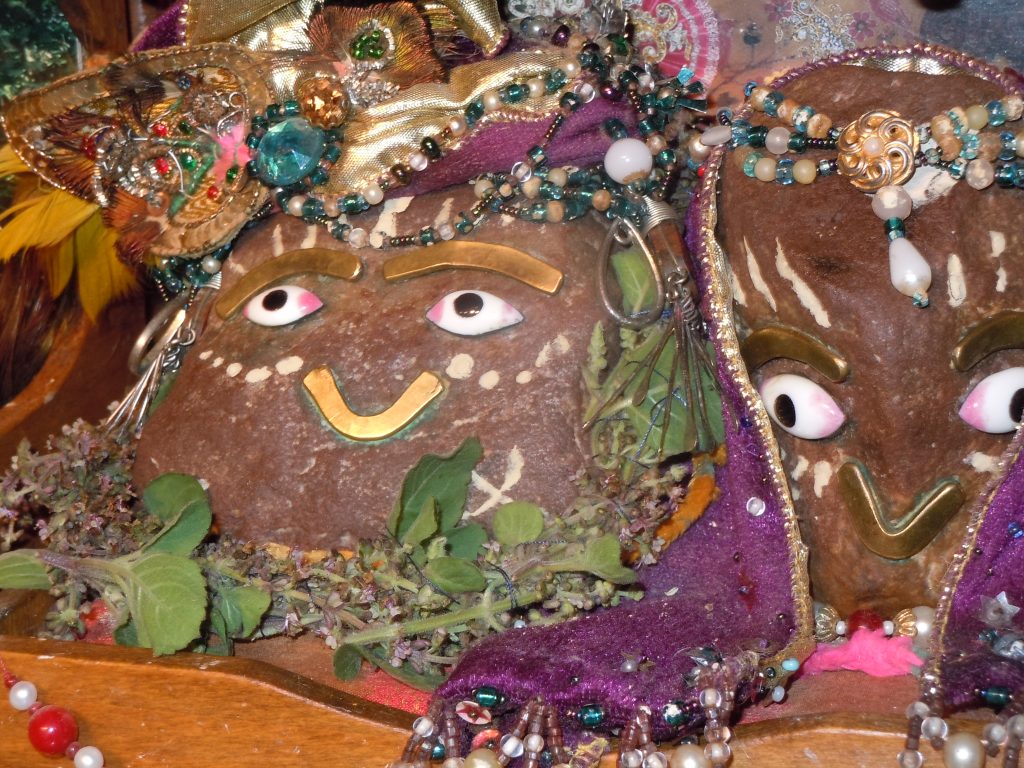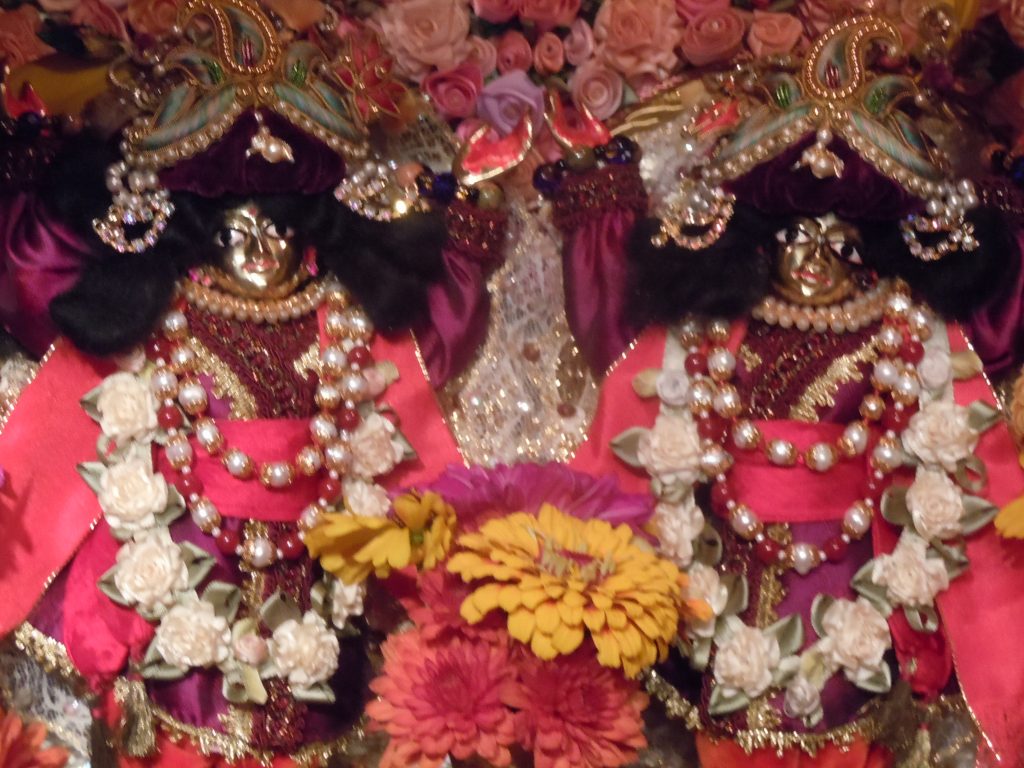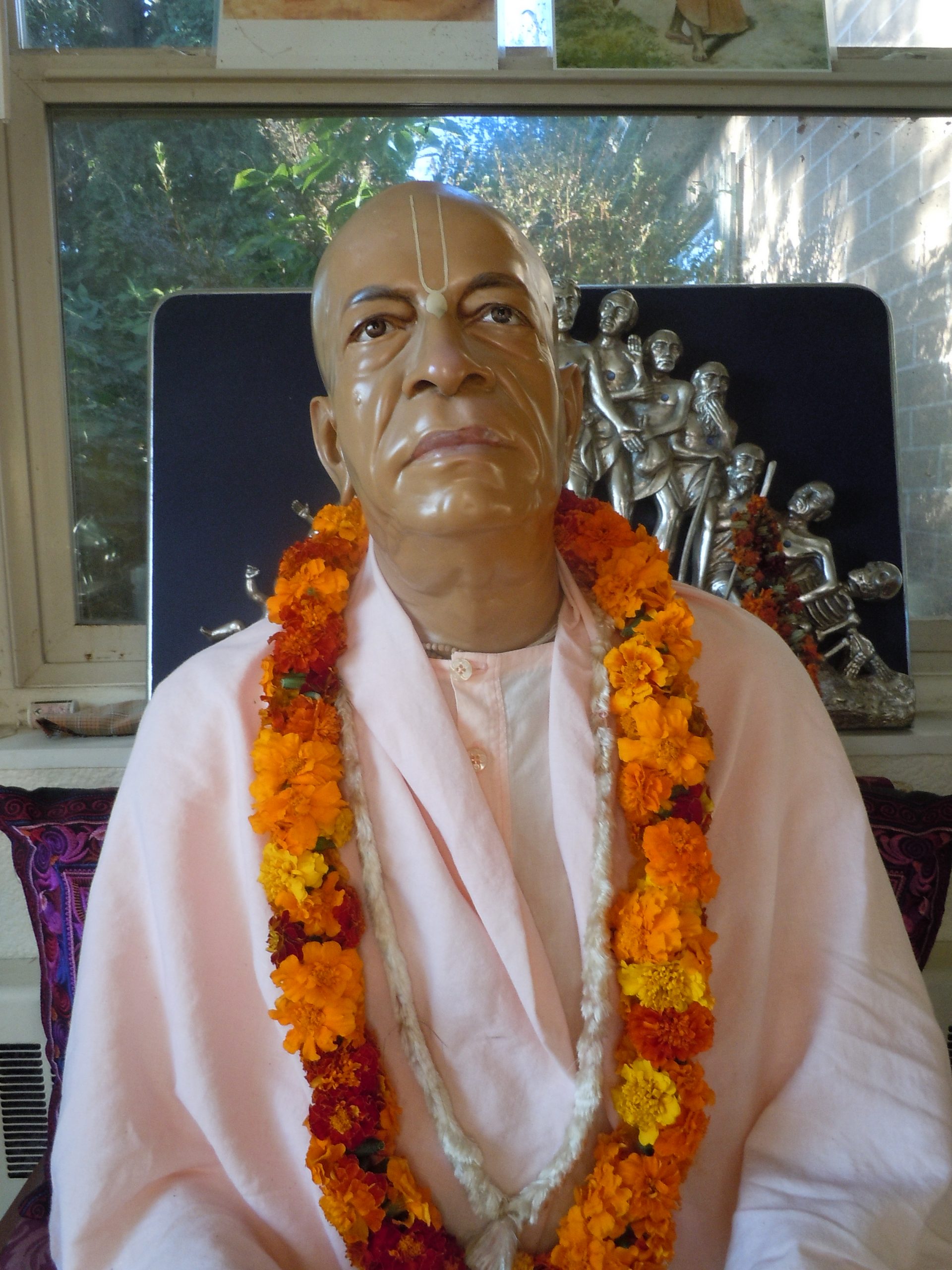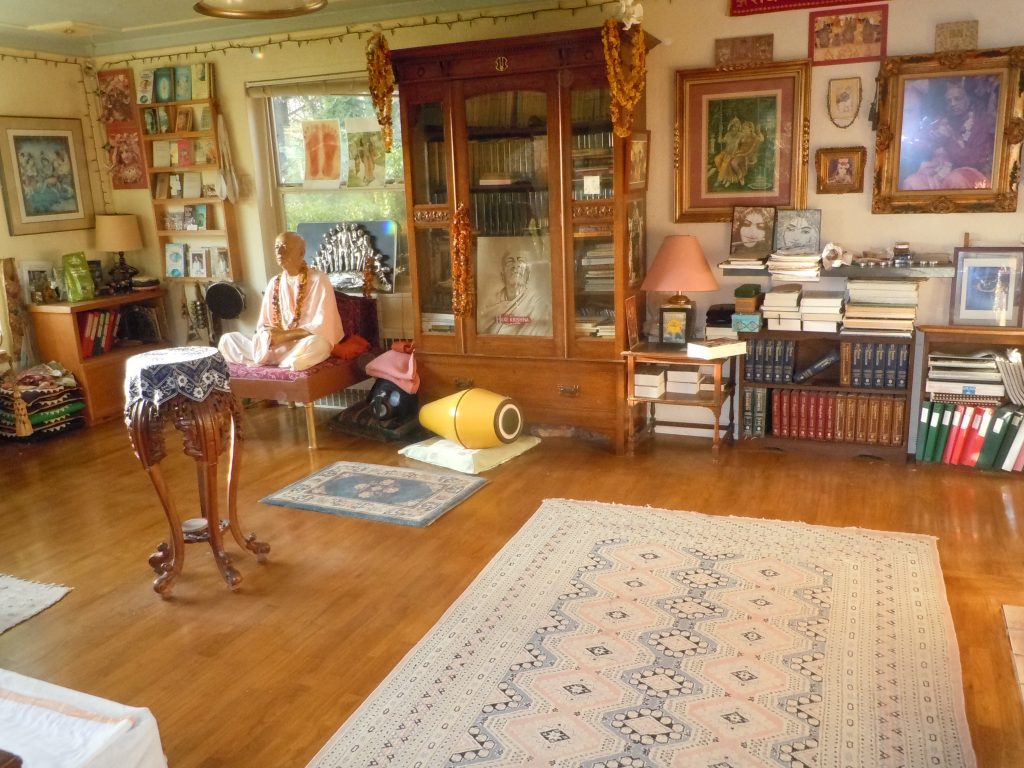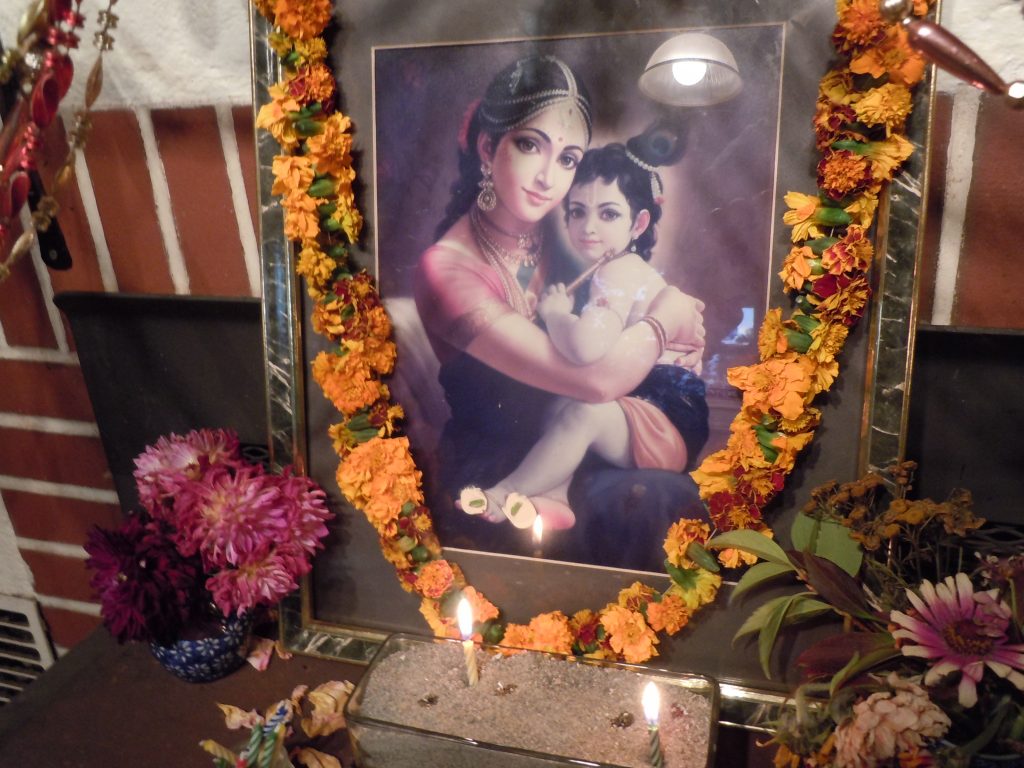 January 4, 2023June 8 1976 LA conversations Guest: Is it possible for one to know how many lifetimes it takes to reach spiritual perfection? Prabhupāda: Immediately, he can take. Provided that he accepts. Just like Kṛṣṇa says, sarva-dharmān parityajya mām ekaṁ śaraṇaṁ vraja [Bg. 18.66]. Find out this verse. Ahaṁ tvāṁ sarva-pāpebhyo mokṣayiṣyāmi mā śucaḥ. Hṛdayānanda: "Abandon…
January 4, 2023June 8 1976 LA conversations Guest: Is it possible for one to know how many lifetimes it takes to reach spiritual perfection? Prabhupāda: Immediately, he can take. Provided that he accepts. Just like Kṛṣṇa says, sarva-dharmān parityajya mām ekaṁ śaraṇaṁ vraja [Bg. 18.66]. Find out this verse. Ahaṁ tvāṁ sarva-pāpebhyo mokṣayiṣyāmi mā śucaḥ. Hṛdayānanda: "Abandon…

Under the guidance, inspiration and authority of
His Divine Grace A.C. Bhaktivedanta Swami Prabhupada
Founder-Acharya of the Krishna Consciousness Movement
Srila Prabhupada: “I wish that each and every branch shall keep their separate identity and cooperate keeping the acharya in the center. On this principle we can open any number of branches all over the world. (Letter, February 11, 1967)
